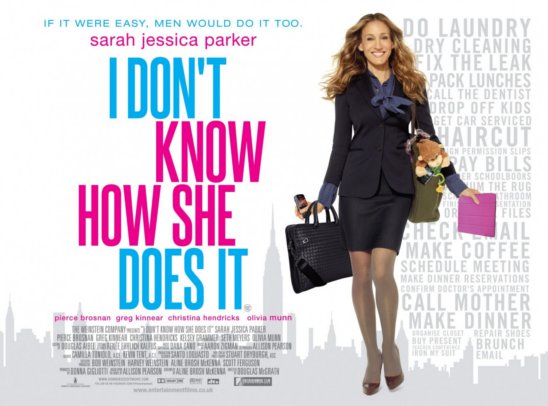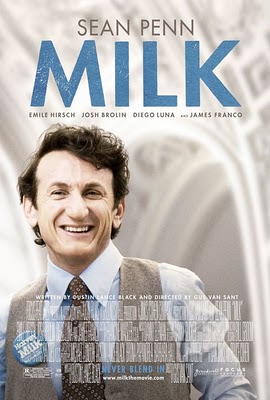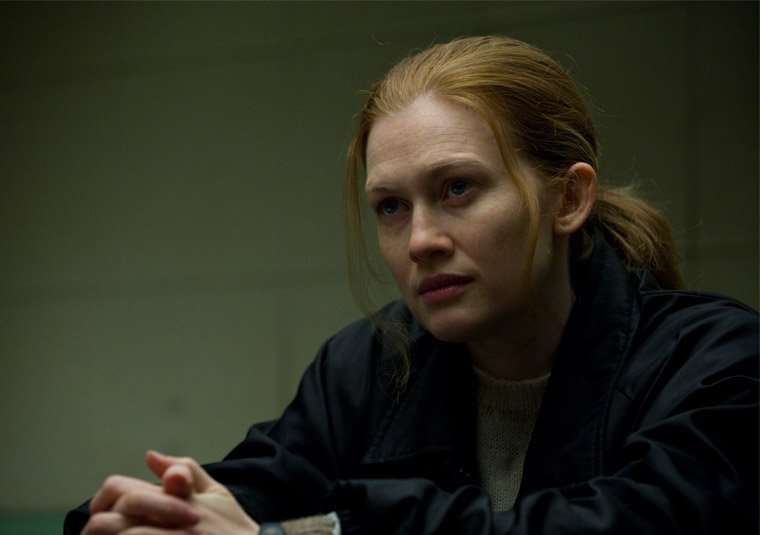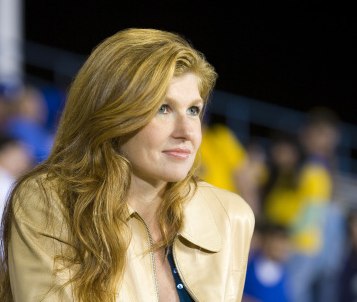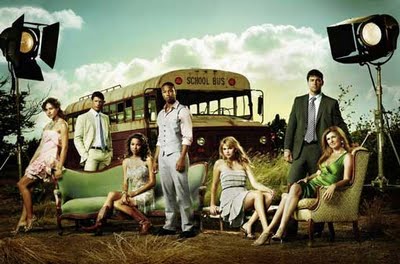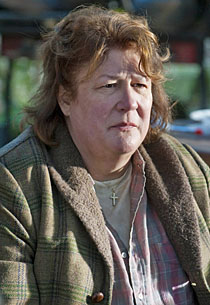Category: Uncategorized
Tropes vs. Women Spotlight
Definition: “The Manic Pixie Dream Girl is a cute, bubbly, young (usually white) woman who has recently entered the life of our brooding hero to teach him how to loosen up and enjoy life. While that might sound all well and good for the man, this trope leaves women as simply there to support the star on his journey of self discovery with no real life of her own.”
Example: “You might remember Zooey Deschanel in 500 Days of Summer, the non-committing love interest of the film’s star, Tom Hansen, played by Joseph Gordon-Levitt. The story follows Tom on his journey of falling in and out of love with Summer Finn. They have the classic Manic Pixie Dream Girl scene where they are frolicking around in the world, and the Manic Pixie teaches the uptight star how to embrace his inner child.” [accompanied by film clip]
Example: “While the Women in Refrigerators trope originated in the comic book genre, it can be applied across other pop culture mediums, such as video games, TV shows, and movies. For example, Libby and Shannon on Lost were murdered specifically to push the story arc of two male characters. Or how about all of these women from Heroes who were depicted as losing or being unable to control their powers.”
Definition: “The Smurfette Principle was named two decades ago by Katha Pollitt, when she noticed that there were a disproportionate amount of male characters in programming aimed at young people. Even in adult programming, when women do appear in the primary cast of a television show or movie, they are usually alone in a group of men. Sadly, this trope has made its way into the 21st century.”
Example: “Down in the 100-acre woods, we follow the adventures of Winnie the Pooh, Rabbit, Piglet, Eeyore, Owl, and Tiger–all dudes of course; in fact, there’s only one female character, Kanga, who shows up occasionally as the mother of little Roo. Even Jim Hensen didn’t seem too keen on the women; alongside Kermit, Gonzo, and Fozzie the Bear, Miss Piggy was the only female muppet. We can even see The Smurfette Principal outside of programming aimed at young people. So, for example, you have George Lucas’ original Star Wars trilogy, where Princess Leia is the only principle female character in the entire galactic empire.”
Example: “In Star Trek: First Contact, we have the Borg Queen trying to seduce Data. Keanu Reeves is taken advantage of by the Brides of Dracula. And then some years later, in Buffy the Vampire Slayer, Giles meets these three sisters. In the science fiction show, Farscape, there’s the villain, Grayza, with her enchanting body sweat. There are the evil mermaids in Pirates of the Caribbean 4. And Mystique in X-Men often fulfills this trope.”
Definition: “The Mystical Pregnancy is a trope writers use to create drama and terror by invading, violating, and exploiting women’s reproductive capabilities. Often these female characters have their ovaries harvested by aliens or serve as human incubators for demon spawn. Sometimes, they are carrying the Messiah, and other times Satan himself.”
Example: “Remember back in the mid-90s on the X-Files when FBI Agent Dana Scully found herself abducted and forcibly impregnated, which, of course, later culminated in a hybrid human-alien child? More recently, on the second season of Battlestar Galactica, Starbuck had her ovaries harvested by the cyclons in an attempt to create human-cyclon embryos. Then we have Gwen Cooper, co-star of the Doctor Who spinoff, Torchwood, who is bitten by an alien one night, and the next morning she wakes up to find herself extremely pregnant with the alien’s spawn.”
Definition: “In television and movies, The Straw Feminist works by deliberately creating an exaggerated caricature of a feminist, which writers then fill with a bunch of oversimplifications, misrepresentations, and stereotypes to try to make it easy to discredit or delegitimize feminism. The goal is to make feminists and our movements look completely ridiculous, over the top, and unnecessary.”
Example: “The Straw Feminist trope is taken to a whole new level in adult animation shows such as South Park or Family Guy. In the episode, “I Am Peter, Hear Me Roar,” the Family Guy writers took a stab at feminist attorney Gloria Allred. Allred is known for taking on high-profile cases defending women who have been assaulted or harassed. In this attack, the Family Guy writers created a character coincidentally named Gloria Ironbox, who brainwashes Peter into thinking he is a woman after he’s accused of sexual assault. The emasculation and feminization of Peter–and his sudden transformation into a feminist–is played for laughs.”
Ripley’s Rebuke: ‘Whitney’ versus Whitney
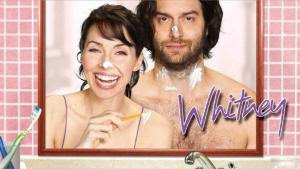 |
| Even the promo shots for Whitney attempt retro, but come off as regressive. |
I Don’t Know How She Does It: Most Misogynistic Film Reviews Ever
 |
|||
| I Don’t Know How She Does It, starring Sarah Jessica Parker |
I haven’t seen the film, so I can’t comment on how successfully or unsuccessfully it tackles these issues, or whether it ultimately validates the dominant ideology that women shouldn’t sacrifice family for career, or whether it works to move past its showcasing of upper-class privilege in an economic climate that certainly makes the career/family balancing act an important issue for all women. Unfortunately, I can, however, comment on how successfully or unsuccessfully film reviewers have discussed the film. Just reading the brief snippets of reviews on Rotten Tomatoes pissed me off. (You’ve been warned.) But two reviews in particular—Stephen Holden’s in the New York Times and David Cox’s in the Guardian—sent me over the fucking edge.
Holden begins his review by talking about Sarah Jessica Parker’s plague of “post-Carrie Parkeritis” and describes it as a curse “in which a star finds herself condemned to eke out the last drops of freshness from the role … that made her world famous eons ago.” He then goes on to compare Sarah Jessica Parker’s Sex and the City problem with Julia Roberts’ Pretty Woman problem, which he dubs “The Roberts Syndrome.” This is seriously problematic. Julia Roberts, since her role in Pretty Woman twenty years ago, has won an Oscar, has been nominated for several Oscars, has won several Golden Globes, has been nominated for two Critics’ Choice Awards (and won the Best Actress category), has been nominated for an Emmy and an Independent Spirit Award, has won about a million People’s Choice Awards, and is generally considered one of the most popular and talented actresses on the planet.
You don’t get to compare Julia Roberts’ entire career to Sarah Jessica Parker’s entire career just because they’re both women who became famous for playing a character the audience connected with. If we’re being honest about identifying a problem “in which a star [is] condemned to eke out the last drops of freshness from the role … [made] famous eons ago,” a more apt comparison might involve, oh, say … any successful male action star who keeps making the same action movies over and over and over and will only, forever, in his entire career, continue to make the same incessant action movies. Comparing one famous film star who has a vagina with another famous film star who has a vagina doesn’t make the comparison fucking true.
But it gets worse. Holden employs the most sexist language I’ve ever read in a New York Times film review. I’ll just pull some quotes, for starters, with the offending passages in bold:
“Although the movie is chock-full of smart one-liners, and Ms. Parker’s maniacally giddy Kate wages a full-scale charm offensive, the movie inadvertently makes Kate’s supposedly golden life look like a living hell.”
“The jittery momentum of the movie, directed by Douglas McGrath (“Emma,” “Infamous”), mirrors Kate’s frazzled state all too well.”
“But more often than not, Ms. Parker’s straining to be funny comes across as desperation to please.”
“Mr. Kinnear’s Richard is a near-cipher who reacts to Kate’s hysteria with mild exasperation, only raising his voice once (and not very loud).”
“A calm, enlightened, impossibly courtly, unattached widower who tolerates Kate’s every quirk and begins to fall in love with her, he is the polar opposite of a driven financial kingpin like Richard Fuld, the final former chief executive of Lehman Brothers.”
“The movie’s one unalloyed delight is Olivia Munn’s portrayal of Kate’s poker-faced assistant, Momo, a spiritual first cousin of Anna Kendrick’s Natalie Keener in “Up in the Air,” but icier and more robotic. Beneath Momo’s composure lurks a terror that leaks out when she learns she is pregnant.”
“Carrie Bradshaw flirted her way into mass consciousness in the late ’90s, when Ms. Parker was in her early 30s, and well before Sept. 11, two wars and a major recession dampened American exuberance. If Kate’s hyperkinetic cheer and shrill self-absorption are Carrie trademarks, 13 years after “Sex and the City” first appeared on television, their appeal has all but evaporated.”
It’s no secret that I lost a significant amount of respect for the New York Times when its botched coverage of a sexual assault did nothing more than condone rape and rape culture. In this case, Holden’s review perpetuates sexism and sexist attitudes in a much more subtle but no less significant way. I expect more than this from a supposedly progressive media organization such as the New York Times. (Sort of.) I also expect more from the fucking Guardian. What the hell, David Cox? If Holden’s sexism was subtle … Cox’s sexism is a full-frontal attack on women in the workforce:
“The family and the job keep making annoying demands, all of which she pluckily tries to meet.”
“He’s [Kate’s husband] trying to pursue a career of his own, but when junior falls down the stairs it’s Dad who has to take him to hospital, since Mom’s away on business yet again.”
“Hubby comes to appreciate that he’s got to do more of the housework. This surely is the way things ought to be …
It’s not only Kate who thinks so. Highly advantaged women often seem to assume they’re entitled to total fulfilment both at work and at home … If they don’t get it, they’ve been robbed.”
“Ambitious mums can try to turn their partners into house-husbands, but it would be only fair to tell them what they’re in for. Instead of expecting childless colleagues to cover for them, they could admit that mumps and nativity plays will come first, and accept the consequences, however unwelcome.”
“It’s like this, Kate. If you want to have it all, it’s your job to work out how to do it. If you can’t, give something up. But don’t expect the rest of us to underwrite your bliss.”
“The family and the job keep making annoying demands, all of which he pluckily tries to meet.”
“She’s [his wife] trying to pursue a career of her own, but when junior falls down the stairs it’s Mom who has to take him to hospital, since Dad’s away on business yet again.”
“Wifey comes to appreciate that she’s got to do more of the housework. This surely is the way things ought to be …
It’s not only her husband who thinks so. Highly advantaged men often seem to assume they’re entitled to total fulfilment both at work and at home … If they don’t get it, they’ve been robbed.”
“Ambitious dads can try to turn their partners into house-wives, but it would be only fair to tell them what they’re in for. Instead of expecting childless colleagues to cover for them, they could admit that mumps and nativity plays will come first, and accept the consequences, however unwelcome.”
“It’s like this, Man. If you want to have it all, it’s your job to work out how to do it. If you can’t, give something up. But don’t expect the rest of us to underwrite your bliss.”
The language of these two film reviews says much more about the reviewers and their misogyny—regardless of whether they intended to come across as sexist—than it does about the actual film. I find it troubling that a movie attempting to explore an issue that women still struggle with (even if it ends up reinforcing rather than critiquing the problem) gets so much coverage, not of the success or failure of its subject matter, but of the pluckiness, giddiness, flirtatiousness, hysteria, and general over-reaching of its main woman character. As if that weren’t enough, and we needed a healthy dose of objectification thrown in for good measure, the free newspaper Metro made sure they had it covered.
Thanks Holden, Cox, and Metro! Truly great work here indeed.
Best Picture Nominee Review Series: Milk
Emmy Week 2011: Why Steely Homicide Detective Sarah Linden Is So Refreshing
 |
| Mireille Enos as Sarah Linden in The Killing |
It’s kind of my favorite part of this role — how much of this story is told just through Sarah thinking and letting the audience sit with her in her thoughts.
The female leads are very human and very real and very flawed, yet are good cops. Maybe that’s the difference: women are interested in creating real female leads.
Emmy Week 2011: Tami Taylor, My Hero
 |
| Connie Britton as “Tami Taylor” in Friday Night Lights |
Emmy Week 2011: Liz Lemon: The "Every Woman" of Prime Time
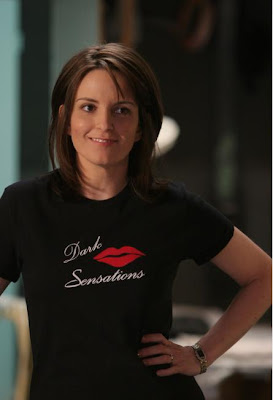 |
| Tina Fey as “Liz Lemon” in 30 Rock |
On the surface, Liz charms the audience with her awkward girl-next-door looks, geeky-smart plastic-framed glasses that she apparently doesn’t need to improve her vision, inappropriate behavior in the workplace and her penchant for drawing the unlucky hand in love. Yet getting to know Liz on a deeper level inspires a sense that this is a woman who, while filled with self-loathing and assorted neuroses, has a heart for people and justice and a knack for making the ridiculous hilarious.
Not surprisingly, Fey has once again been nominated for an Emmy for Outstanding Lead Actress in a Comedy Series for her work this year on 30 Rock. Fey has received the nomination each of the five seasons 30 Rock has aired, winning the Outstanding Lead Actress Emmy once in 2008.
What is most endearing about Liz is that she is less “Murphy Brown” and more “Lucille Ball.” Liz is perfectly imperfect and knows this. She continually apologizes for her shortcomings as a human being. She doesn’t have anything figured out and struggles to get through the day knowing that she doesn’t “have it all” and that she probably never will. Had the character of Liz been a strong, successful career woman in the male-dominated business of television, she would have been less able to connect with the audience. Surely Liz has risen through the ranks to be head writer at a successful sketch comedy show, yet her incompetence at work along with her vocal dissatisfaction with her loveless personal life, and even her lack of financial savvy by leaving $12,000 in her checking account rather than investing, make her easier to like and relate to. Even as we see her stretching toward the top, there’s no mistaking the fact that Liz will never break through the shatterproof Plexiglas ceiling.
Online media is filled with Web sites and articles on both Tina Fey and Liz Lemon attempting to analyze where one leaves off and the other begins to determine how much of Liz is really Fey. Frankly, if the character of Liz was too closely based on Fey, we may have stopped tuning in the first season.
What Fey was able to do was take the physical and mental quirks of her own and then add to that an excessive dose of dysfunctional human qualities that make Liz such a train wreck and, thus, a joy to watch. The weekly deconstruction of her psyche takes viewers on yet another downward spiral that ultimately makes viewers feel good about themselves. Sure, we may not subscribe to an organized religion, but are we as bad as Liz who claims she believes whatever Oprah tells her to believe? Maybe we won’t admit to feeling the same way, but most of us do know women who place Oprah on an altar and do-read-buy whatever Oprah says is a must. Additionally, we may not yell at incompetent people we encounter each day as Liz would, but our connection with her is strengthened because we want to berate them and call them jerks, but social boundaries keep us in check. With Liz, we can enjoy the fantasy of venting out loud without the societal consequences.
In any discussion of Liz Lemon, the question of feminism arises. In the pilot episode, Jack Donaghy quickly and accurately characterizes Liz as a third-wave feminist. One thing Jack is, and that is a master at marketing and knowing markets. He can size up people instantly. Jack’s insights into Liz are better than her own. Through Jack, the parts of Liz that she couldn’t put into words are brought to life. Remember “porn for women”? Jack realized from his encounters with Liz that women want someone to listen to them, and he quickly developed an entire cable selection of hunky men who, for a price, would listen and talk to women on their TV screens for as long as they desired. Liz purchased immediately.
Frankly, any woman today qualifies as a third-wave feminist because that is the underlying tenet of the concept: there are as many definitions of feminism as there are women. No longer is feminism defined as one cohesive line of thinking. During the so-called first wave, women were united in the fight for voting rights. The second-wave feminists were determined to see civil rights and social rights uniformly recognized for all people regardless of gender. Without a uniform cause and agenda today, this third wave of feminism lacks any agreed upon definition or boundaries of thought which is exactly the point: there is no one “woman’s point-of-view.”
Yet how does Liz live out this idea of third-wave feminism? How was this so obvious to Jack?
Feminism defined by Liz is contradictory in that she is a strong career woman and that she is a complete person outside of having a man to validate her existence. Yet Liz has a strong desire to be in a relationship, and she is irrationally angry with women who have husbands or children. Her job as head of TGS with Tracy Jordan (formerly called The Girlie Show) is certainly testament to her abilities in a male-dominated industry, yet her staff of men and her boss, Jack, causes her to continually apologize for being tough or demanding.
Liz’s self-image is played out in her wardrobe, which is androgynous at best. In one episode, Jack comments that she is dressing as if she shops at Kmart. Clothing choices tell a great deal about how a woman feels about herself. For Liz, she has been stripped of all femininity and sees herself as trying to fit in with the masculine world in which she works and socializes, in spite of being mistaken for a Lesbian.
Liz Lemon is entertaining because in most regards, she’s worse off than we are. She may have a better job than most of us, but her staff ridicules her, and her boss is continually undermining her efforts to be a strong leader. Liz barely gets respect from her closest female friend Jenna, but even she is too wrapped up in her own neuroses to give much time to Liz’s problems. Compared to Liz, all of us are better off than she is. In every respect of her life, Liz comes up short: her wardrobe is wrong for her career, she’s single and hates it, and her friendships are sub par with the exception of Jack, who knows her best. While he most likely wouldn’t donate a kidney to Liz even if she desperately needed it, we get the impression he would make arrangements for her to have the best dialysis money could buy, and he would probably keep her company during treatments. Many of us would consider ourselves fortunate to have a friend like Jack.
Liz is the modern-day “every woman” who realizes her flaws, hates herself for them, yet owns her misery and wears it daily like a pair of comfortable Kmart sweatpants. No one loves Liz Lemon for being perfect. What makes Liz draw in an audience is her dysfunction in every aspect of her life. How she reacts to her life is always unexpected yet entirely appreciated.
Lisa Mathews is a relocated Los Angeles native and former newspaper reporter currently pursuing a graduate degree in political science.
Emmy Week 2011: Friday Night Lights: Deep in the Heart of Texas
 |
| Cast of Friday Night Lights |
(I’d have included pictures, but I defy you to find a picture of any of these women on the Internet that doesn’t put them in some sort of come-hither pose that exposes a whole lot of skin. Sigh. These ladies deserve better.)
One of my favorite characters over the final two seasons of Friday Night Lights is Jess Merriweather. She is the eldest daughter of a former football player-turned-restaurant owner, older sister and surrogate mother to two younger brothers, and football lover. When we first meet her, she is a cheerleader for the new East Dillon Lions (and that image of her remains during the final season’s opening credits); one could wonder why we never saw her as a Dillon Panther cheerleader, but it becomes clear that she probably would never have fit in with the Lyla Garrity-types at the old high school.
No, it becomes clear that Jess is only a cheerleader because it is the only legitimate way for her, a girl, to be close to the game she adores. We see her coaching her younger brother, watching the games not in order to find a potential mate but to dissect plays and increase her football IQ. She is a smart, driven young Black woman, trapped between her love of football and the very gendered expectations of the town. When she is given the opportunity to “coach” star quarterback/boyfriend Vince over the summer, she finds her outlet. Unfortunately, once school and the season start up again, she is relegated to the demeaning role of “rally girl.”
The rally girl is a problematic, but all too realistic, role for Jess. She views herself as Vince’s equal, not his servant. The typical role of the rally girl is to do whatever she can to “motivate” the football players to play at their best on Fridays. In fact, the rally girls wear their respective player’s jersey, essentially owned by the player. It also should be noted that the girls get no say in who their player is; the girls randomly pull jerseys out of a box, and the player can barter and trade girls if the price is right (in one case, it’s a prized pig – do with that what you will). For most of the girls, it is an honor to be a rally girl, to be associated with the “star” football players. But that is not what Jess wants anymore from football; residual fame and greatness is no longer enough.
Jess, instead, becomes the equipment manager for the team. She gets a respectable uniform (versus the scantily-clad cheerleaders), access to the locker room, the coach, the sidelines, and the game. Her job is far from glamorous; she cleans jock straps, washes towels, works to prevent staph infections. Of course, this role strains her relationship with Vince; Vince tries to protect her from the ribbing the team subjects her to, while Jess wants to prove she can hold her own, on her own. In fact, it is Coach Taylor, and not the players, who has the most difficulty accepting Jess in her new role.
Jess fights for the respect of the players and Coach Taylor, working hard to be the best equipment manager/future coach she can be. She presents Coach Taylor with a profile of a female high school football coach to prove to him that it can be done. He tries to scare her by laying out her odds for success. Jess’ confidence never wavers, and Coach Taylor, champion of lost causes (see Vince, as well as Tim Riggins and Matt Saracen), is won over. We last see Jess as an equipment manager at her new school in Dallas.
Jess is just one example of the type of strong, well-developed female characters Friday Night Lights has created. The final two seasons also allowed us to get to know Mindy Riggins: older sister to former cast member Tyra Collette, stripper, mother, and wife to Billy Riggins (who was a former Panther star). In the early seasons, Mindy was simply an excuse for Tyra (and the rest of the cast) to visit The Landing Strip, Dillon’s local strip club. Mindy and their pill-popping, boozy mother Angela, were representative of everything Tyra wished to escape. Tyra did, in fact, successfully make it out, attending UT Austin. But what about those who are left behind in the small town of limited possibilities?
Mindy follows what might be seen as a stereotypical small-town girl path: she gets pregnant and gets married. Both she and Billy struggle with paying their bills and finding meaningful employment. But in what could easily have become a caricature of “white trash” existence (drinking, fighting, divorce, abuse) becomes a very real picture of two people trying to make it work in tough economic times. Mindy also steps up and takes Becky under her wing, a girl in whom she sees much of herself. Mindy also has a boozy mother, an absent father, and is left on her own to navigate through life (but more on her in a moment). When Mindy witnesses Becky being abused by her father and step-mother, she steps in (forcing Billy to do the same) and defends Becky. This is an incredible act from someone who, up until this point, saw Becky as competition rather than a sister. Mindy was perhaps the first person who ever stood up for Becky, acting as the advocate she herself probably never had.
This relationship, of course, is not without its problems; Mindy takes Becky and her son to The Landing Strip and even allows Becky to waitress at the club. Stripping (and as an extension, the strippers themselves) are neither glorified nor vilified by the show. In a town where economic opportunities are limited regardless of gender, these women make money the best way they can, using their bodies to pay the rent. There is nothing glamorous or liberating about their jobs, besides the “easy money” that can be made. But that money isn’t as easy as Becky thinks it is. We see Mindy furiously working out in order to get her body back into shape for the job, and even then, she is relegated to the humiliating “lunch shift.” But the women are also treated with dignity, at least within their group. They are far from being victims or victimized; initially, the show seemed to be saying that Mindy was a stripper because she didn’t have a father and her mother was lacking. But during the last two seasons, the strippers move from being symbols of failure to symbols of survival.
Mindy finds a community with the women of The Landing Strip, and a support system that she never had before, finding a place where she can be honest about her past abortion and how it is still impacting her relationships. The ladies from the strip club also take Becky to participate in one of her pageants; when one of the judges criticizes Becky’s choice of “supporters,” Becky clearly chooses her new family over her dreams of winning pageants. I’ll admit that I bawled like a baby during the final episode when Mindy and Becky say goodbye to each other when Becky moves out to live with her mom again. Family, in this show, is who sticks with us through the hard times.
Which brings us to the issue of the abortion. Becky gets pregnant during the fourth season (by a football player, no less), and she does, indeed, go through with having an abortion (some would argue at her mother’s insistence). Initially, the abortion more immediately impacts another character, Tami Taylor, who was at that time vice-principal at Dillon High School (Becky goes to East Dillon). Tami was brought in to counsel Becky when she had no one else to turn to. But while Becky seems to have come through the abortion okay, we learn in the fifth season that she still carries some unresolved feelings about the boy who got her pregnant.
This portrayal of a young girl feeling trapped by a bad situation is handled, to my mind, sensitively and realistically. Becky is not left unaffected by the procedure, nor does she seem permanently and disastrously scarred. Those around her (her mother, the mother of the baby’s father, the community) seem more upset and emotionally reactionary than Becky herself. It also seems that the extreme reactions of those around her affect her more than the abortion itself; it is again only when she confides in the strippers that she gets the level-headed and unconditional support she needs to move past the event. Abortion, it would seem, is not the issue; the hysteria surrounding it is.
These are just three of the complex women of Friday Night Lights. I’ve focused on the final two seasons, as this is the season that is up for an Emmy. One could look at the evolution of Lyla, Julie, Tyra, and other early-season characters, as well as the myriad of “minor” characters who have populated the edges of the show (Maura the rally girl, Epyk the problem child, Vince’s mother, and Devin the lesbian spring to mind). Each one deserves her own essay, devoted to all the ways the show did (and didn’t) do the characters justice.
Emmy Week 2011: Jane Krakowski and the Dedicated Ignorance of Jenna Maroney
 |
| “I’m prepared to do a nipple slip if you need it.” –Jenna Maroney, played by Jane Krakowski |
For the third year in a row, Krakowski has been nominated for an Emmy as Best Supporting Actress in a Comedy Series and is totally deserving of such recognition. She’s funny, and she holds her own with Fey without hogging all the laughs, as both women are equally comical. Fey’s Liz Lemon is the frumpy, repressed, writer of TGS, the faux comedy show that is supposedly taped at 30 Rockefeller Center, while Krakowski’s Jenna is a narcissistic, delusional lead actress on the show. The reason Liz is constantly attempting to hold everything together is due in part to Jenna’s hare-brained schemes. Of course, Tracy Morgan’s Tracy Jordan puts an equal strain on Liz’s patience—his shenanigans often involve the outrageousness and ridiculousness of celebrity lifestyles (extravagant purchases, questionable infidelities, hazardous health concerns, etc), whereas Jenna’s usually revolve around an actor’s internal conflicts (sharing screen time with new cast members, relationship issues with family and lovers, holding together what C-list stardom she has left). Tracy Jordan is the star of TGS, but Jenna is the fading has-been. She is a character who gets both laughter and pity, sometimes at the same time.
“Everyone shout out words that describe my beauty.”
“I can play dead. I watched my whole church group get eaten by a bear.”
“We’re actors. If we didn’t exist, how would people know who to vote for?”
“Look at our biological clocks: You’re going baby crazy, and I keep getting turned on by car accidents.”
“I’ll do it! But only for the attention.”
Whether or not Jane Krakowski wins at this year’s Emmy Awards remains uncertain; she could be out-voted by another Jane (that is, Jane Lynch who plays Sue Sylvester on Glee) or by sentimental favorite and TV legend Betty White (from Hot in Cleveland). Regardless of the outcome, Krakowski has crafted a character both memorable and three-dimensional—even on “cam-urr-rah!”—but most importantly, funny. Tina Fey will always be recognized as today’s funniest female, but without Krakowski on 30 Rock, Liz Lemon would have nowhere to “go to there.” As a supporting character, Jenna Maroney has earned her own spotlight—even if she had to pay an NBC page to shine it on her 24/7.
Emmy Week 2011: Mags Bennett: As Wholesome As Apple Pie
 |
| Mags Bennett, played by Margo Martindale |
That said, it is a male-centric show, depicting a male-centric world. In the first season, our main character, Deputy U.S. Marshal Raylan Givens (Timothy Olyphant, also nominated for an Emmy), spends his time fighting, shooting, justifying his fighting and shooting to his boss, and protecting and bedding pretty blonds. He also spends an entire episode getting back his cowboy hat. The criminal family he battles is Bo Crowder and his boys, and much is made of the complicated power dynamics between men, particularly fathers and sons. One might get weary from all the testosterone (as the one female marshal acknowledges in an early episode).
But in season two, the show gives us Mags Bennett, head of the Bennett clan, a matriarch wielding absolute power (and a ball-peen hammer) over her territory. She sets herself apart from both the women and the men in the show and their prescribed gender roles, inhabiting both enforcer and nurturer, often at the same time. Margo Martindale, a well-lauded stage actor, too often is relegated to the screen margin, playing the supporting roles of gruff nurse (Mercy), sassy neighbor (The Riches) or kindly old friend (Dexter). Martindale admits in a recent interview that a role like “Mags Bennett comes along maybe just once in a lifetime.” But roles like this—multi-faceted, problematic, and compelling—are what we need to see more of on television.
I don’t know what episode was submitted for the Emmy voters (there are plenty to choose from), but let me make my pitch for the first episode. It doesn’t have the flash of her stirring, but duplicitous, speech to the coal mining company trying to buy the town away from the people, or the shock value of her smashing one son’s hand to bits while blaming the other for her actions, or even the tragedy of the final episode. But it does provide the roundest view of the character, an incredible feat for an initial introduction.
Apple Pie: the symbol of American domesticity, of homegrown goodness, warm and comforting. Mags makes “apple pie” that the entire county admires, but this apple pie is more than it appears to be. It is a symbol of Mags herself. It appears in three distinct scenes, each giving us a glimpse into the complexity of Mags.
Sharing a Slice of History
When she offers it to Raylan, the audience sees it as a peace offering, a moment of communion between two feuding families. As the two recount their shared history, Raylan’s deference to her in the scene is a stark contrast to his interactions with the Crowders. With the Crowders, when Raylan acted with restraint, it was clear that it was out of fear, out of the knowledge that he didn’t hold the power in a given situation. But that didn’t stop him from spouting snarky one-liners. With Mags, Raylan acts not just of out pragmatism, but out of respect. Even as he takes her measure, he addresses her, not as Mags, but as Mrs. Bennett, and is, frankly, polite; it smacks of the Southern gentility that surfaces whenever he interacts with a woman. His gracious acceptance of her apple pie signals to the audience that Mags is a crime-lord of a different sort. When she pulls out the jar, we see her apple pie for what it is: a home-brewed moonshine, and a tasty one at that. But like Mags’ weed, a moonshine named “apple pie” seems innocuous, not the meth or oxycotin that the Crowders dealt.
Pie as Retribution
The apple pie moonshine makes its second appearance in her sit down with McCready (Chris Mulkey), after he has been shot by her boys for stealing and Loretta has made it home safely from her abduction. Again, the moonshine appears to be a communion of sorts, a way for Mags and McCready to admit their sins, ask for each other’s forgiveness, and return to the status quo. And Mags’ speech follows that path, asking after Loretta. She forgives McCready for his stealing, and insists that her son apologize for shooting him and forcing his foot into a trap. Sure, she continues to draw information out of McCready about what he has told the police and what risk he might still pose, but she does so as a benevolent leader. As McCready says all the right things, we watch as both McCready and Mags try to assess the situation and determine what will happen next. Unlike the scene with Raylan, there is no subtle jockeying for power; it is clear that Mags is in control. And it is through her apple pie that she exerts her control. Having poisoned McCready’s glass, she calmly explains to him that his real crime was going outside the family by calling the cops about Loretta’s abductor. She is both terrifying and comforting as she grips his hand as he dies, talking him through the pain and pledging to raise Loretta as her own. She is not a benevolent leader, and her apple pie can longer be seen as innocuous. From this scene on, every time she reaches for a mason jar to pour someone a drink, we question her motives.
Too Young for Pie
Mags and Loretta McCready (the fabulous Kaitlyn Dever) also share a drink in opening scenes of the next episode, and coming on the heels of the apple pie murder, perhaps the audience is supposed to assume that Loretta is a goner too. But, ultimately we know Mags will not kill the girl. Not because she is too kindly or motherly to do so (the season gives us plenty of evidence that Mags can be just as ruthless to her kin as she is to outsiders), but because she longs for something she gave up when she took over the family business. Mags lives in the world of men, and to survive in that world she does what so many strong female characters do—she becomes masculine. Such figures maintain control through fear and violence, they wield weapons and talk of war, and they protect their own at the expense of others. Mags sees Loretta as a possibility for a different way. Having lost her feminine side so long ago, she mistakenly equates femininity with innocence, and struggles to keep Loretta away from the ugly truths.
The audience gets the first glimpse of Mags in this light in “The Moonshine War,” after Loretta comes to see her to atone for her father’s theft. Mags shows real concern for the girl and promises to protect her from the pervert who has accosted her. But she seems even more worried with how Loretta is managing at home, asking her about her father’s ability to take care of her. Mags is upset that Loretta felt that she needed to take control of the household, to grow up before she should have to. As she hands Loretta a handful of candy, she makes it clear that Loretta should relinquish that kind of responsibility to Mags.
In the next episode, the two share a similar, though more emotionally loaded, moment. She pours Loretta a glass of apple cider, explaining that she is a few years away from being able to have Mags’ apple pie. In part this reads as a warning; Loretta might one day need killing. But mostly, this sentiment is Mags shielding the girl from the poison of her world. As Mags fiddles with Loretta’s jewelry and strokes her hair, she lies to Loretta about her father and confesses her desire to have a daughter instead of being stuck with “just those damn boys.” This scene is replayed later in the season as Mags helps Loretta get dressed up for a picnic, explaining to her that there is nothing wrong in looking pretty and that her [Mags’] time for that is long past. It is in her scenes with Loretta that we most clearly see the regret Mags has for what she has had to become, and what she has had to give up to do so.
Emmy Week 2011: Here There Be Sexism?: ‘Game of Thrones’ and Gender
I recognize that there’s a difference between displaying sexism because it’s the time period and condoning said sexism. But this IS a fantasy, not history, meaning the writers can imagine any world they wish to create. So why imagine a misogynistic one?
Written by Megan Kearns, cross-posted from The Opinioness of the World
One of the most complicated characters, Daenerys Targaryen (Emilia Clarke), the meek, docile sister of her creepy pervo pimping brother, accused of having a “gentle heart,” becomes queen, the Khaleesi of the Dothraki. Watching her transformation into a caring yet steely, powerful queen (from standing up for herself against her douchebag brother Viserys Targaryen to defending women healers in a battle and rallying her people), has been one of the most enjoyable parts of the show for me. While she’s one of my fave characters, massive misogynistic problems still exist with her role. Viserys asks his sister:
Viserys: So tell me, sweet sister, how do we go home?
Daenerys: I don’t know.
Viserys: We go home with an army. With Khal Drogo’s army. I would let his whole tribe fuck you–all 40,000 men and their horses too if that’s what it took.
“In the game of thrones, you win or you die. There is no middle ground.”
Sansa Stark (Sophie Turner), daughter of Catelyn and Eddard, differs from many of the depicted women for she only cares about dancing and getting married (at 13?!) as she simpers and worships douchebag Prince Joffrey (Jack Gleeson). But we eventually begin to see a different side of Sansa after she witnesses a horrific tragedy, brought upon by her poor judgment.
One of the rare times the show passes the Bechdel test (and of course it’s debatable if it actually does pass it in this scene as it’s spurred by the illness of Daenerys’ husband Khal Drogo) is in the season finale when Mirri Maz Duur (Mia Soteriou), the enslaved sorceress/healer and Daenerys speak. Daenerys, furious at Mirri Maz, proclaims that she saved her. But Mirri Maz replies that by the time she was “saved,” she’d already been raped by three Dothraki men, her temple burned down, and townspeople she befriended slain. So she questions what exactly Daenerys saved her from? I thought this was an interesting scene depicting the power of perspective. It disappoints me though that when two women talk with one another on-screen, which doesn’t happen very often, the plot usually pits them against one another, a common trope in films and TV shows.
In addition to Mirri Maz, there are other secondary female characters who we don’t know much about (yet): Ros, Armeca and Shae (sex workers); Jhiqui, Irri and Doreah (Daenerys’ handmaidens); Osha (a wilding – person living north of the Wall – and slave of Winterfell); and Septa Mordane (a priestess who sacrifices her life to protect Sansa).
 I know I’m being hard on the show. Despite its gender problem (and race problem – very few people of color are characters, except for the Dothraki who are depicted as “primitive” and “savage,” a common racist trope) it is absolutely fantastic and amazing. By the 4th episode I was hooked, eager to see what would happen next. But a show so meticulously made of such stellar caliber shouldn’t suffer from so much sexism. I shouldn’t have to overlook excessive misogyny in order to watch TV. The show seems to remain incredibly faithful to its source material. Interestingly, George R.R. Martin wrote the first book, entitled Game of Thrones, from the perspective of 9 different characters (Will of the Night’s Watch, Lord Eddard Stark, Lady Catelyn Stark, Jon Snow, Arya Stark, Sansa Stark, Bran Stark, Tyrion Lannister, Daenerys Targaryen), half from the vantage of the female characters. As delighted as I am with myriad strong heroines, a show devoid of female writers (save for Jane Espenson who co-wrote one episode), directors or producers, can’t help but feel like a testosterone extravaganza.
I know I’m being hard on the show. Despite its gender problem (and race problem – very few people of color are characters, except for the Dothraki who are depicted as “primitive” and “savage,” a common racist trope) it is absolutely fantastic and amazing. By the 4th episode I was hooked, eager to see what would happen next. But a show so meticulously made of such stellar caliber shouldn’t suffer from so much sexism. I shouldn’t have to overlook excessive misogyny in order to watch TV. The show seems to remain incredibly faithful to its source material. Interestingly, George R.R. Martin wrote the first book, entitled Game of Thrones, from the perspective of 9 different characters (Will of the Night’s Watch, Lord Eddard Stark, Lady Catelyn Stark, Jon Snow, Arya Stark, Sansa Stark, Bran Stark, Tyrion Lannister, Daenerys Targaryen), half from the vantage of the female characters. As delighted as I am with myriad strong heroines, a show devoid of female writers (save for Jane Espenson who co-wrote one episode), directors or producers, can’t help but feel like a testosterone extravaganza.
It would be one thing if the show made a commentary on the sexism that pervades society, a la Mad Men. But that doesn’t appear to be what’s happening here. The women are subjected to misogyny and patriarchy (hmmm…sounds like modern times!). But none of them challenges it, even subversively. When the one female character acts authoritatively, asserting her will and seizing power, she’s diminished by her supernatural powers. Even the women who are bold and strong on the show, except perhaps Daenerys, are tethered to a short leash, ultimately deferential to the more powerful men surrounding them. For a TV show borne of fantasy, it’s time we imagined better.





